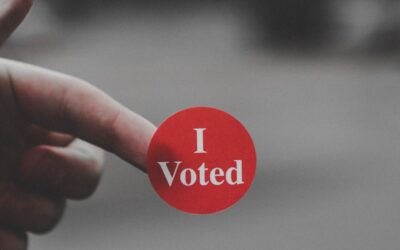Every so often, atrocities rise to the level of global attention in a way that triggers and disturbs our conscience, and evokes a collective outcry of “No! This isn’t right! This needs to stop.” These instances are rare, not in the sense that the atrocities are rare (sadly, they are not), but rare in the sense that we as human beings and societies seldom have the moral sense and courage to decry patently wrong behaviors with the compelling force of a unified voice. In the aftermath of these sort of moral outrages, the question which always follows is: “How do we fix this? What problems should we address?”
The answer usually breaks down into two camps: those who believe the problem is the system and those who believe the problem is the individual. If we throw politics into the mix, the Democratic response is usually to reform the system, and the Republican response is usually to reform the individual. If we think Biblically, the answer is that both need reforming. Systems and individuals live in a symbiotic, cyclical relationship, where individuals shape systems, and then individuals are shaped by systems. Part of the sad injustice of this is that often the individuals most negatively impacted by a system have the least voice in altering the shape of that system.
True justice and righteousness requires good individuals (esp. those in power) and good systems. That’s why the most upstanding individual can be spit out of a corrupt system, and we also find “paper democracies” which look beautifully egalitarian in principle, while harboring the grossest abusers. To take the example of racism, we cannot hope that better teaching, training, and vetting of individuals in positions of authority, apart from systems of accountability, will diminish oppression. On the other hand, we cannot believe that perfect institutional equity (system) will change a heart of racism or an attitude of superiority, or one of fear.
Systemic injustice
Ecclesiastes has a sad, sobering way of facing the cold realities of life in a broken world.
“If you see in a province the oppression of the poor and the violation of justice and righteousness, do not be amazed at the matter, for the high official is watched by a higher, and there are yet higher ones over them.” (Ecc 5:8)
Solomon (or another author) says two significant things here about systems and institutions which are pertinent to every age:
-
- Don’t be naive.He tells us: when you see oppression, when you see injustice, when it comes to light that people are abusing their power, don’t be the one who refuses to recognize it until you have no choice. When you hear rumors of a vicious, ugly beast who prowls about in the darkness, and there keep being people who mysteriously disappear during the night, or who are discovered in the morning with their throats slashed, don’t be the person who, when the beast is finally caught in the act, you collapse and faint in surprise. It is not becoming to a Christian who is told to be wise as a serpent, to be one of those shaking their heads in disbelief, saying: “I never would have guessed.”
- The ones who make the rules tend to design systems which protect the ones who make the rules. A high official is watched by a higher, and there are higher ones over them. In a system, everyone has everyone else’s back. If you are inside such a system, you are dependent on and benefit from the good will of other people in that system. Therefore, it takes tremendous moral fortitude to question someone else manipulating the system, let alone to see and change the ways you do it yourself.
Individual injustice
David, the man after God’s own heart, confesses in Psalm 51:5:
“Behold I was brought forth in iniquity, and in sin did my mother conceive me.”
God has what we might call a “less than charitable” perspective on our odds as human beings of naturally inclining toward love and compassion
“The Lord saw that the wickedness of man was great in the earth, and that every intention of the thoughts of his heart was only evil continually.” (Gen 6:5)
You would be hard pressed to come up with a deeper, more probing, more sweeping denunciation of man’s inability to either construct good systems or within a good system to remain faithful. When God declares that every intention of the thoughts of our heart is continually evil, He is drilling down to our subconscious. Our deepest, subtlest, most hidden, innate tendencies are towards selfishness, corruption, and evil.
Where is hope?
We are not left without hope. God’s common grace restrains us from giving free rein to chaos and darkness. So we are not as bad as we could be if left to ourselves. But better than that, the redeeming grace of Jesus has the power to save and transform both individuals and systems. God enables us by his Spirit to abhor what is evil and hold fast to what is good. (Rom 12:9) As we press into God’s plan of Christ-likeness, He enables us to see people more as He sees them, and to serve in our vocations, institutions, and systems in a way that advances his kingdom of love rather than our own kingdoms.
This article was originally posted on Ref21





0 Comments